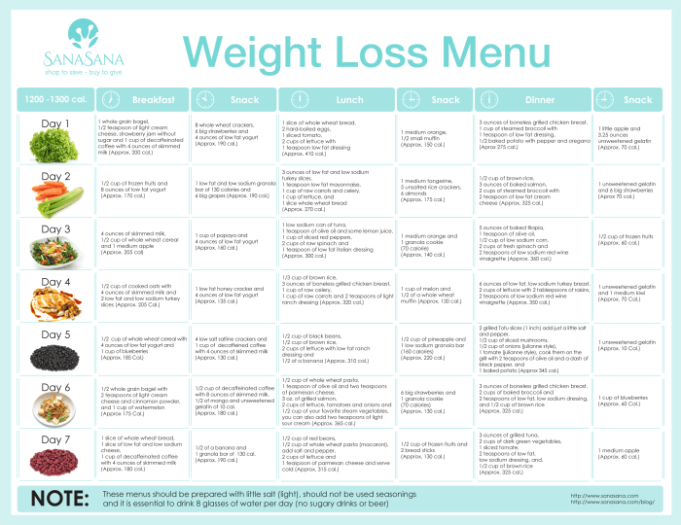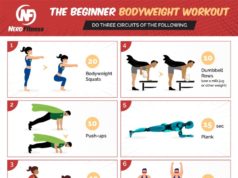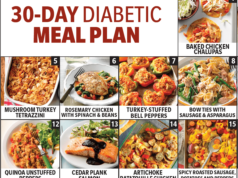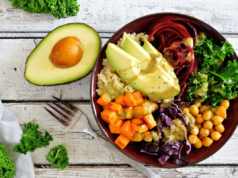Cheap diets to lose weight are often sought after by individuals looking to shed pounds without breaking the bank. While the idea of saving money on food while losing weight may seem appealing, it’s essential to approach such diets with caution and a focus on nutritional balance.
This guide will explore the concept of cheap diets, delve into nutritional considerations, provide budget-friendly food choices, and offer sustainable weight loss strategies. We’ll also discuss the importance of incorporating physical activity and mindful eating habits to achieve lasting results.
Understanding Cheap Diets
Losing weight can be expensive, but it doesn’t have to be. Cheap diets are meal plans designed to help you shed pounds without breaking the bank. They often focus on affordable, readily available foods, prioritizing cost-effectiveness over exotic ingredients.
Benefits and Drawbacks of Cheap Diets
Cheap diets can offer several advantages, such as:
- Cost-effectiveness: They prioritize budget-friendly foods, making them accessible to individuals with limited financial resources.
- Simplicity: Many cheap diets are easy to follow, relying on basic ingredients and straightforward recipes.
- Sustainability: By using affordable staples, these diets can be maintained over the long term.
However, cheap diets also have potential drawbacks:
- Nutrient deficiencies: Some cheap diets may lack essential nutrients if they rely heavily on processed foods or limited food groups.
- Limited variety: The focus on affordability can lead to a monotonous diet, potentially impacting enjoyment and adherence.
- Lack of personalized guidance: Cheap diets may not address individual dietary needs or health conditions.
Common Cheap Diets
Here are some examples of common cheap diets, along with their pros and cons:
The Bean Diet
The bean diet emphasizes beans as a primary source of protein and fiber.
- Pros: Beans are inexpensive, high in protein, and a good source of fiber.
- Cons: It can be monotonous, and some individuals may experience digestive discomfort from high fiber intake.
The Rice and Beans Diet
This diet combines rice and beans for a balanced source of carbohydrates and protein.
- Pros: Rice and beans are affordable staples, providing essential nutrients.
- Cons: It may lack variety and could lead to nutrient deficiencies if not supplemented with other foods.
The Soup Diet
The soup diet involves consuming various types of soup, often low in calories and fat.
- Pros: Soups are typically low in calories and filling, making them suitable for weight loss.
- Cons: It can be restrictive and may not provide sufficient nutrients for long-term adherence.
The Vegetarian Diet
While not exclusively a cheap diet, vegetarianism can be a cost-effective way to lose weight, as plant-based foods are generally more affordable than meat.
- Pros: Plant-based foods are typically lower in calories and fat than animal products, and they offer a wide range of nutrients.
- Cons: Vegetarians need to ensure they consume adequate protein and essential vitamins and minerals, which may require careful planning.
Nutritional Considerations
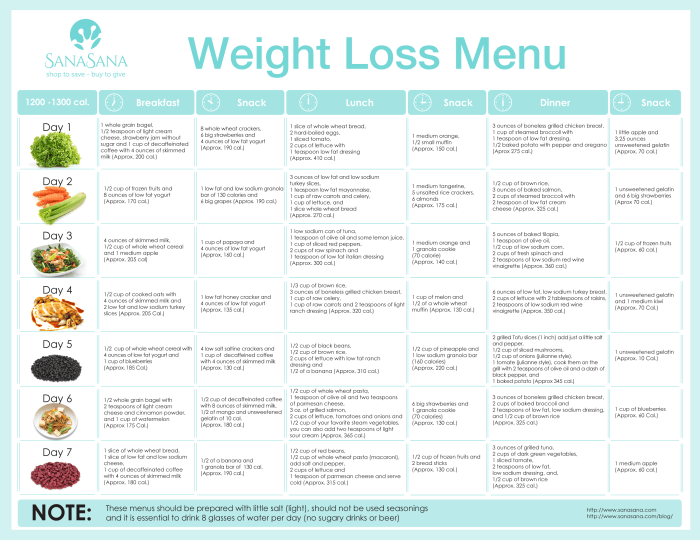
While saving money on groceries is important, it’s crucial to ensure your diet provides the essential nutrients your body needs. This section will delve into the essential nutrients to prioritize on a cheap diet and discuss the potential risks of nutrient deficiencies. Additionally, we’ll provide tips for ensuring adequate nutrient intake while sticking to a budget.
Prioritizing Essential Nutrients
A balanced diet, even on a budget, should prioritize essential nutrients like protein, fiber, vitamins, and minerals.
- Protein: Crucial for muscle growth and repair, protein sources like beans, lentils, eggs, and canned fish are affordable and readily available.
- Fiber: Found in fruits, vegetables, and whole grains, fiber promotes digestive health and helps with weight management. Affordable sources include oats, beans, and leafy greens.
- Vitamins and Minerals: Fruits and vegetables are excellent sources of vitamins and minerals, offering a wide range of nutrients at a relatively low cost. Choosing seasonal produce or buying frozen options can help save money.
Potential Risks of Nutrient Deficiencies
Restricting your diet to save money can lead to nutrient deficiencies, potentially impacting your health.
- Iron Deficiency: Iron deficiency can cause fatigue, weakness, and shortness of breath. Common in vegetarians and vegans, it’s important to include iron-rich foods like beans, lentils, and fortified cereals.
- Vitamin D Deficiency: Vitamin D is essential for bone health and immune function. Sunlight exposure is a primary source, but supplementing with vitamin D may be necessary, especially during winter months.
- Calcium Deficiency: Calcium is vital for strong bones and teeth. Dairy products are good sources, but affordable alternatives include leafy greens, fortified plant milks, and tofu.
Tips for Ensuring Adequate Nutrient Intake
- Plan Your Meals: Creating a weekly meal plan helps prevent impulsive purchases and ensures you’re consuming a variety of nutrient-rich foods.
- Cook More Meals at Home: Cooking at home allows for greater control over ingredients and portion sizes, saving money compared to eating out.
- Buy in Bulk: Purchasing staples like rice, beans, and oats in bulk can be more cost-effective.
- Choose Seasonal Produce: Seasonal fruits and vegetables are often more affordable and flavorful.
- Utilize Frozen and Canned Options: Frozen and canned fruits and vegetables are often more affordable and can be just as nutritious as fresh options.
- Consider Fortified Foods: Fortified foods like cereals and plant milks can provide essential nutrients like calcium, iron, and vitamin D.
Budget-Friendly Food Choices
Eating healthy doesn’t have to break the bank. There are plenty of affordable and nutritious food options available that can help you achieve your weight loss goals. By focusing on whole, unprocessed foods and making smart choices at the grocery store, you can create a balanced and satisfying diet without sacrificing your budget.
Budget-Friendly Food Choices
Choosing budget-friendly foods doesn’t mean sacrificing nutrition. Here’s a table highlighting affordable and nutritious food options for each food group, along with cost-effective tips:
| Food Group | Examples | Nutritional Benefits | Cost-Effective Tips |
|---|---|---|---|
| Fruits | Bananas, Apples, Oranges, Berries, Grapefruit | Rich in vitamins, minerals, fiber, and antioxidants. | Buy fruits in season, choose frozen fruits, or opt for canned fruits packed in water or their own juice. |
| Vegetables | Potatoes, Carrots, Spinach, Broccoli, Onions, Cabbage, Green Beans | Packed with vitamins, minerals, fiber, and antioxidants. | Buy in bulk, choose frozen vegetables, or opt for canned vegetables packed in water or their own juice. |
| Grains | Brown Rice, Oats, Quinoa, Whole Wheat Bread, Pasta, and Cereals | Provide complex carbohydrates, fiber, and essential nutrients. | Look for generic brands, buy in bulk, and consider making your own bread or pasta. |
| Protein | Beans, Lentils, Eggs, Chicken Breast, Tuna, Salmon (canned or frozen) | Essential for building and repairing tissues, maintaining healthy bones, and supporting a strong immune system. | Buy beans and lentils in bulk, opt for frozen or canned tuna and salmon, and choose lean cuts of chicken or turkey. |
| Dairy | Milk (skim or 1%, unsweetened almond milk, soy milk), Yogurt (plain or Greek), Cheese (low-fat or reduced-fat) | Provides calcium, vitamin D, and protein. | Choose store-brand dairy products, buy milk in larger quantities, and opt for plain yogurt to control added sugar. |
Sample Weekly Meal Plan
Here’s a sample weekly meal plan that incorporates these affordable choices:
Monday
* Breakfast: Oatmeal with berries and a sprinkle of nuts.
* Lunch: Salad with grilled chicken or chickpeas, and a side of whole-wheat bread.
* Dinner: Lentil soup with whole-wheat bread.
Tuesday
* Breakfast: Yogurt with fruit and a drizzle of honey.
* Lunch: Leftover lentil soup.
* Dinner: Baked chicken breast with roasted vegetables.
Wednesday
* Breakfast: Toast with avocado and a fried egg.
* Lunch: Tuna salad sandwich on whole-wheat bread.
* Dinner: Black bean burgers on whole-wheat buns with a side of salad.
Thursday
* Breakfast: Smoothie with fruit, yogurt, and spinach.
* Lunch: Leftover black bean burgers.
* Dinner: Salmon with roasted vegetables.
Friday
* Breakfast: Eggs with whole-wheat toast.
* Lunch: Salad with grilled chicken or chickpeas, and a side of whole-wheat bread.
* Dinner: Chicken stir-fry with brown rice.
Saturday
* Breakfast: Pancakes with fruit and a drizzle of syrup.
* Lunch: Leftover chicken stir-fry.
* Dinner: Pizza with whole-wheat crust, vegetables, and lean protein.
Sunday
* Breakfast: Waffles with fruit and a drizzle of syrup.
* Lunch: Leftover pizza.
* Dinner: Roasted chicken with mashed potatoes and gravy.
This is just a sample meal plan, and you can adjust it based on your preferences and dietary needs. The key is to focus on whole, unprocessed foods and to make smart choices at the grocery store.
Sustainable Weight Loss Strategies
Losing weight on a budget is great, but it’s crucial to make sure your weight loss journey is sustainable in the long run. This involves creating healthy habits that you can maintain over time, ensuring you don’t regain the weight you’ve lost.
Incorporating Physical Activity
Regular physical activity is essential for sustainable weight loss. It helps you burn calories, build muscle, and improve your overall health. However, joining a gym or taking expensive fitness classes isn’t necessary to reap the benefits of exercise.
Affordable Ways to Exercise
- Outdoor Activities: Take advantage of free outdoor activities like walking, running, hiking, swimming, or biking. These activities are not only cost-effective but also enjoyable and provide a chance to connect with nature.
- Home Workouts: There are numerous free workout videos available online, catering to various fitness levels and preferences. You can also use household items like water bottles or chairs as weights for a challenging workout.
- Group Fitness: Look for free or low-cost group fitness classes offered by community centers, parks, or local organizations. These classes provide motivation, social support, and a fun way to stay active.
Portion Control and Mindful Eating, Cheap diets to lose weight
Portion control and mindful eating are crucial for sustainable weight loss. They help you consume fewer calories while still feeling satisfied.
Strategies for Portion Control
- Use Smaller Plates: Using smaller plates can trick your brain into thinking you’re eating more than you actually are.
- Measure Your Food: Measuring your food portions can help you understand how much you’re actually consuming and avoid overeating.
- Eat Slowly and Mindfully: Taking your time to eat and paying attention to your hunger cues can help you feel full sooner and prevent overeating.
Recipes and Meal Ideas
Eating healthy on a budget doesn’t mean sacrificing delicious and satisfying meals. This section provides budget-friendly recipes for breakfast, lunch, dinner, and snacks, emphasizing healthy and flavorful choices.
Breakfast
Here are some budget-friendly breakfast ideas that are quick and easy to prepare:
- Oatmeal: Oatmeal is a versatile and inexpensive breakfast option. You can customize it with different fruits, nuts, and seeds. For instance, a simple and healthy oatmeal recipe includes rolled oats, water, milk, and a handful of berries.
- Eggs: Eggs are a great source of protein and can be cooked in many ways. Scrambled eggs with vegetables, omelets, or hard-boiled eggs are all budget-friendly options.
- Yogurt Parfait: Layer yogurt, granola, and fruit for a quick and satisfying breakfast. Choose plain yogurt and add your own fruit and granola to save money.
- Toast with Avocado: A simple slice of whole-wheat toast topped with mashed avocado provides healthy fats and fiber. You can add a sprinkle of salt and pepper for flavor.
Lunch
Here are some budget-friendly lunch ideas that are filling and nutritious:
- Salads: Salads are a great way to get your daily dose of vegetables and can be customized with different toppings. For example, a simple salad can include lettuce, tomatoes, cucumbers, and a light dressing.
- Sandwiches: Sandwiches are a classic lunch option and can be made with a variety of fillings. Use whole-wheat bread for added fiber and choose lean protein sources like chicken or turkey.
- Soup: Soup is a hearty and budget-friendly lunch option. You can make a large batch of soup and freeze leftovers for later.
- Leftovers: Leftovers from dinner can be a great way to save time and money.
Dinner
Here are some budget-friendly dinner ideas that are healthy and satisfying:
- Chicken Stir-Fry: Chicken stir-fry is a quick and easy dinner option that can be made with a variety of vegetables.
- Lentil Soup: Lentil soup is a hearty and filling dinner option that is packed with protein and fiber.
- Pasta with Tomato Sauce: Pasta with tomato sauce is a classic and budget-friendly dinner option. You can add vegetables and lean protein to make it more nutritious.
- Bean Burrito Bowls: Bean burrito bowls are a great way to get your daily dose of protein and fiber. You can customize them with different toppings like salsa, avocado, and cheese.
Snacks
Here are some budget-friendly snack ideas that are healthy and satisfying:
- Fruits and Vegetables: Fruits and vegetables are a great source of vitamins, minerals, and fiber. Choose in-season fruits and vegetables to save money.
- Nuts and Seeds: Nuts and seeds are a good source of protein and healthy fats. You can buy them in bulk to save money.
- Hard-Boiled Eggs: Hard-boiled eggs are a quick and easy snack that is packed with protein.
- Yogurt: Yogurt is a good source of protein and calcium. Choose plain yogurt and add your own fruit and granola to save money.
Tips for Maximizing Ingredient Use and Minimizing Food Waste
- Plan your meals: Plan your meals for the week to avoid impulse purchases and food waste.
- Buy in bulk: Buy staples like rice, beans, oats, and flour in bulk to save money.
- Use leftovers creatively: Don’t throw away leftovers! Use them to make new dishes or freeze them for later.
- Store food properly: Store food properly to extend its shelf life.
- Compost food scraps: Compost food scraps that you can’t eat to reduce waste and create nutrient-rich soil for your garden.
Resources and Support
Embarking on a budget-friendly weight loss journey doesn’t have to be a solo endeavor. There are numerous resources and support systems available to help you stay motivated, informed, and on track. Accessing these resources can significantly enhance your chances of success.
Finding Affordable Food Options
Finding affordable food options is crucial for maintaining a budget-friendly diet. Several resources can help you access nutritious and affordable food choices.
- Local Food Banks: Food banks offer free or low-cost food to individuals and families facing food insecurity. They often provide a variety of fresh produce, pantry staples, and other essential items. To find a food bank near you, you can search online or contact your local social services agency.
- Community Gardens: Community gardens provide an opportunity to grow your own fruits and vegetables, often at minimal cost. They often offer plots for rent or provide free seeds and seedlings. Check with your local community center or parks department to find a community garden in your area.
- Farmers’ Markets: Farmers’ markets offer fresh, seasonal produce directly from local farmers at competitive prices. Many markets also accept SNAP benefits, making them accessible to low-income families. Check online or local newspapers for farmers’ market schedules and locations in your area.
Seeking Guidance from a Registered Dietitian or Nutritionist
Consulting with a registered dietitian or nutritionist can provide valuable guidance and support in developing a personalized, budget-friendly weight loss plan.
- Personalized Meal Plans: Registered dietitians can help you create a meal plan that aligns with your dietary needs, preferences, and budget. They can provide specific food recommendations and recipes that fit within your financial constraints.
- Nutritional Education: They can educate you on essential nutrients, portion control, and healthy food choices. This knowledge can empower you to make informed decisions about your food choices and manage your weight effectively.
- Support and Accountability: Registered dietitians can provide ongoing support and accountability throughout your weight loss journey. They can address any questions or concerns you may have and help you stay motivated to achieve your goals.
Finding Online Communities and Support Groups
Online communities and support groups can provide a valuable source of motivation, inspiration, and practical advice from individuals who are also navigating a budget-friendly weight loss journey.
- Online Forums: Many online forums dedicated to healthy eating and weight management offer a platform for sharing experiences, seeking advice, and connecting with like-minded individuals.
- Social Media Groups: Several social media groups focus on healthy eating and weight loss, providing a space for sharing recipes, tips, and encouragement.
- Weight Loss Apps: Many weight loss apps offer online communities and support groups where users can connect, share progress, and motivate each other.
Wrap-Up: Cheap Diets To Lose Weight
By understanding the principles of cheap diets, embracing nutritious and affordable food choices, and incorporating sustainable weight loss strategies, you can embark on a journey toward a healthier lifestyle without straining your budget. Remember, weight loss is a personal journey, and finding a plan that aligns with your needs and preferences is crucial for long-term success.
FAQ Section
Are cheap diets safe?
Cheap diets can be safe if they prioritize nutrient-rich foods and avoid extreme restrictions. However, it’s crucial to consult a healthcare professional to ensure the diet meets your individual needs.
Can I lose weight quickly with a cheap diet?
While cheap diets may help with weight loss, rapid weight loss is generally not sustainable and can be unhealthy. Focus on gradual and consistent weight loss for better results.
What are some common mistakes to avoid with cheap diets?
Common mistakes include relying solely on processed foods, neglecting essential nutrients, and failing to incorporate physical activity. Seek professional guidance to avoid these pitfalls.
Looking for a way to shed some pounds without breaking the bank? Cheap diets to lose weight can be surprisingly effective, and you don’t have to sacrifice flavor or variety. Start by exploring resources like cheap diet meals websites for budget-friendly meal ideas that are still nutritious and satisfying.
Remember, it’s all about finding a sustainable plan that fits your lifestyle and your wallet, making healthy eating a long-term habit.
Cheap diets to lose weight can be tempting, but it’s crucial to prioritize health and sustainability. While cutting calories is important, it’s also essential to consider the long-term effects of certain food choices. For example, some studies suggest a potential link between artificial sweeteners and diabetes, so it’s worth exploring the question of can diet soda cause diabetes.
Ultimately, a balanced diet with whole foods and regular exercise is the best approach to achieving lasting weight loss and overall well-being.
While there are plenty of cheap diets out there that promise weight loss, it’s important to remember that sustainable weight loss comes from a healthy, balanced approach. A low-carb diet can be an effective way to achieve this, focusing on whole, unprocessed foods.
If you’re interested in learning more about how to implement a low-carb diet, check out this helpful resource on how to low carb diet. Ultimately, the best diet is one that you can stick to long-term, and that includes finding options that fit your budget and lifestyle.















